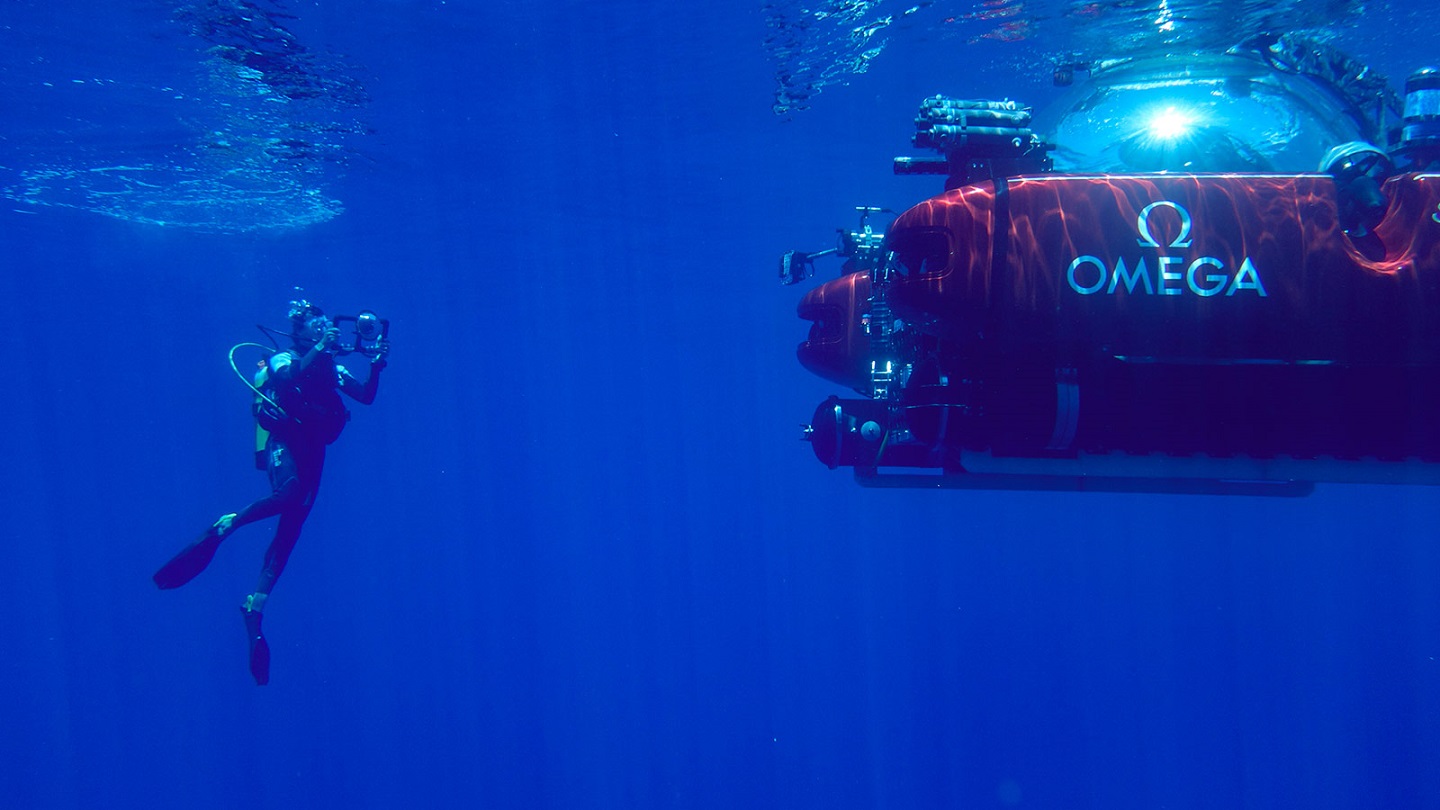
Omega is also a proud supporter and partner of Nekton, a not-for-profit research foundation committed to scientific exploration and protection of the world’s oceans (Photo: Omega)
Time is ticking away. And the planet is in crisis. Human activity are a major threat to the ecosystem, from the increasing reality of climate change to the oceans under siege from plastic pollution, overfishing and potentially industrial scale deep-sea mining, of which researchers still have little to no understanding of its long-term impact.
An estimated eight million tonnes of plastic waste enter the oceans annually. Bluefin tuna stocks reportedly have declined by 96% due to overfishing. And that’s before you add “ocean acidification” to the mix. The oceans (acting like the world’s largest sponge) absorb the increasing amounts of carbon dioxide (CO₂) released into the atmosphere, caused mostly by burning fossil fuels (such as coal and oil) to generate the energy needed to power our cars, trucks, planes and manufacturing plants. When CO₂ dissolves in seawater, it creates carbonic acid, which lowers the pH of oceans, making it more acidic, resulting in the term “ocean acidification”, which, sadly, negatively impacts marine life and ecosystems.
In the light of Earth Day on April 22 — and the upcoming World Ocean Day on June 8 — it is always timely to remember that there is a reason ours is nicknamed the Blue Planet. Oceans cover about 70% of the earth’s surface. And that’s just it. The ocean generates over half the oxygen we breathe while helping distribute heat across the world — regulating temperature and weather, and serving as a crucial foundation for much of the world’s economy, from fishery to tourism to international shipping.
It is time to do more to protect our oceans. The world’s leading watchmakers with a strong connection to the sea have been supporting ocean conservation efforts for decades to raise awareness, help local coastal communities and protect marine life and fragile ecosystems. There has been a shift in emphasis from the early days of exploration to the current need of preservation, and some watch companies are leading the way with impactful ocean conservation initiatives, as well as sustainability efforts to reduce their carbon footprint and CO₂ emissions.
omega.jpg

Omega, with a distinguished history dating back to 1848, has long-standing ties to the oceans and marine life and continues to support individuals and organisations committed to exploration, conservation and the expansion of our knowledge and understanding of the world’s oceans and its ecosystems.
In 2011, Omega established a partnership with the GoodPlanet Foundation, which is dedicated to ecology and the pursuit of sustainable development. It was founded in 2005 by Yann Arthus-Bertrand, a French environmentalist, journalist and photographer. In 2012, Omega produced the documentary film Planet Ocean, directed by Arthus-Bertrand and Michael Pitiot. This award-winning documentary presents outstanding aerial and underwater ocean views and shows how we can all help improve ocean health. Ten aerial cameramen and 13 underwater cameramen were sent all over the world to capture the beauty above and below the ocean’s surface. It is available to watch on YouTube and has garnered over eight million views. Omega is also a proud supporter and partner of Nekton, a not-for-profit research foundation committed to scientific exploration and protection of the world’s oceans. Nekton’s missions in Bermuda, the Caribbean, Seychelles and the Indian Ocean have led to the discovery of the Rariphotic Zone, or rare-light zone. From 130m to 300m deep, over 100 new species were discovered around Bermuda. In 2019, Nekton also started a series of expeditions in the Indian Ocean, the world’s least explored and least protected ocean. Nekton also pioneered live submersible broadcasting from its missions, creating new ways to help people discover the ocean and inspire global action.
cleanup.jpg
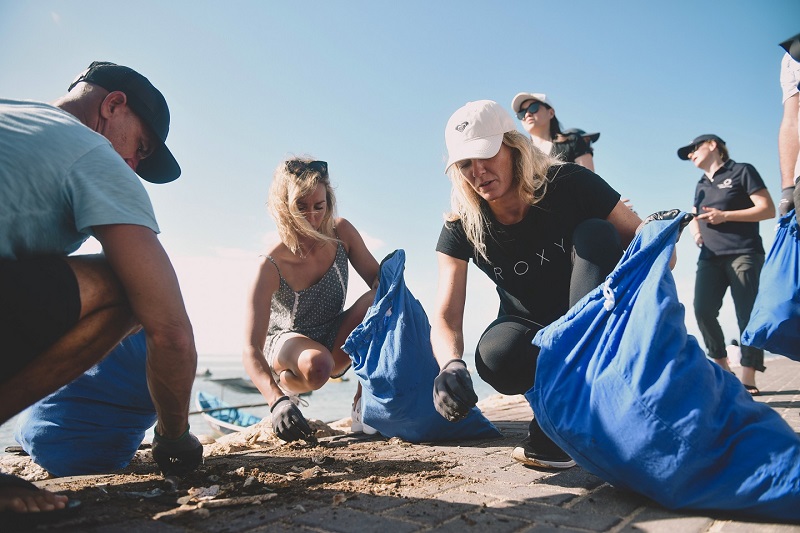
Well-known for its lines of chronograph watches, Breitling has over 130 years of heritage and remains one of the few independent large Swiss watch brands. In 2017, private equity firm CVC Capital bought Breitling and installed Georges Kerns (formerly of Richemont Group) as CEO. Since then, Kerns and his management team have turned things around at Breitling by, among other things, simplifying its product lines, championing inclusivity and incorporating more sustainable practices into the company. Breitling has partnered with Ocean Conservancy, a non-governmental organisation whose mission is to create solutions for a healthy ocean and the wildlife and communities that depend on it. With a shared commitment for clean beaches and healthy oceans, Breitling has taken part in Ocean Conservancy’s global conservation initiatives as a Live Waters Partner by conducting beach clean-ups around the world.
To mark its partnership with Ocean Conservancy in 2019, Breitling held a beach clean-up initiative in Bali with more than 100 guests, along with many local volunteers, including school children. Breitling’s Surfers Squad, which include pro surfers Kelly Slater, Sally Fiz Gibbons and Stephanie Gilmore, were also in attendance to lend a surfing hand. A Breitling limited-edition model was launched on this occasion, together with eco-straps made from Econyl yarn, an innovative material repurposed from nylon waste. A lot of plastic waste and trash were removed from the beach at the end of the clean-up initiative. Apart from the obvious benefits of removing litter from the beach, getting young people involved in the beach clean-up will likely instil in them a newfound appreciation and respect for the ocean that hopefully will continue long into their adulthood.
In a strong sustainability push towards reducing the carbon impact of traditional watch box packaging, Breitling has come up with an innovative “upcycled watch box” made from 100% upcycled plastic bottles. Small, foldable and reusable, the new Breitling watch packaging was awarded the “Solar Impulse Efficient Solution Label” by the Solar Impulse Foundation. This label serves as a credible marker of quality towards efficient sustainable solutions.
cousteau_divers_wants_to_unite_divers_to_study_the_ocean.jpg
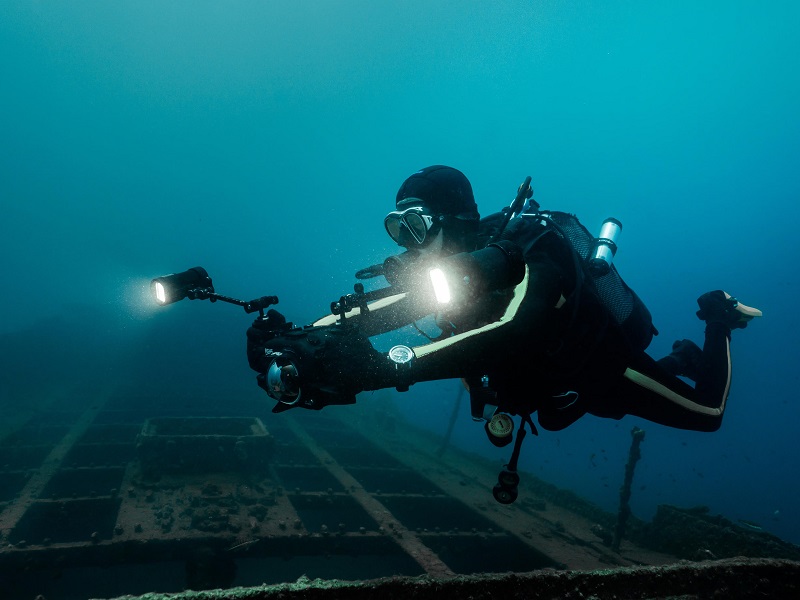
IWC Schaffhausen is perhaps best known for its exquisite pilot timepieces. However, its dive watches from its “Aquatimer” collection, first launched in the 1960s, are also highly regarded in the watch industry. IWC is committed to ocean conservation and sustainability, and has partnered with Cousteau Divers to measure oceanic temperatures and study how changes in temperature affect coastal ecosystems, which are home to a vast majority of marine biodiversity. Cousteau Divers is a non-profit organisation founded by Pierre-Yves Cousteau, the son of legendary explorer and conservationist Jacques Cousteau.
IWC has also supported the Charles Darwin Foundation (CDF) on the conservation of the Galapagos Islands, and even introduced various Aquatimer watches dedicated to CDF and the Galapagos, with a portion of proceeds benefiting the foundation and its causes. On its sustainability journey, which began over a decade ago, IWC released in 2022 the fourth edition of its Sustainability Report, which highlights its progress towards its sustainability targets and goals. This report featured a foreword by environmentalist and supermodel Gisele Bündchen, appointed by IWC as its environmental and community projects adviser. Since 2009, she has served as a goodwill ambassador for the United Nations Environment Programme, engaging in causes that advocate for biodiversity and wildlife. She has been honoured by Harvard University and University of California, Los Angeles, for her long-standing commitment to environmental issues.
One key innovation by IWC is the introduction of new sustainable straps for its watches. In 2021, it launched the TimberTex straps, which are produced in Italy and use 80% plant-based fibres, sustainably sourced from European forests. Following this, it developed another innovative watch strap, this time made entirely with plants and minerals that do not contain any petrochemicals or plastic. Named MiraTex, these eco-friendly watch straps are made of natural materials such as FSC-certified natural rubber, cork powder and various mineral colourants.
razer-panerai_usp02_mobile.jpg
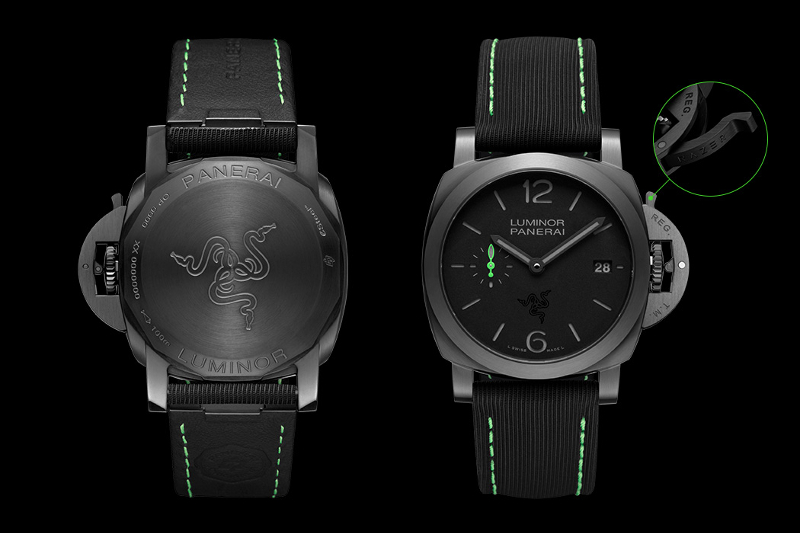
Panerai, the Italian watchmaker whose origins date back to 1860 when it opened its first shop in Florence, is well known for its distinctive cushion-shaped case design, patented crown-protecting device and being the official watch supplier to the Royal Italian Navy in the 1930s and 1940s. Its line of dive watches remain popular today among watch enthusiasts. With its strong ties to the marine world, it is no surprise that Panerai is a strong advocate for ocean and environmental conservation.
The company has partnered with IOC-Unesco (the Intergovernmental Oceanographic Commission of Unesco) to launch the Panerai Ocean Conservation Initiative and the development of ocean literacy programmes to promote science-based management of ocean and marine resources. A key part of this initiative is to educate students, stimulate their thinking on oceanic issues and inspire them to transform ocean knowledge into positive action. The initiative also strives to encourage private sector industries to pursue more sustainable practices in their operations.
In 2021, Panerai partnered with gaming company Razer to sponsor non-profit environmental organisation Conservation International’s Manta Ray research programme. Manta rays play a very important role in maintaining healthy coral reefs, according to a recent study by Save our Oceans Foundation. They travel regularly between coral reefs and the deep ocean, where they eat a certain type of zooplankton. When they return to the reefs, their waste acts as fertiliser, providing the coral with nutrients that promote coral growth. Manta rays have been listed as vulnerable due to overfishing, plastic pollution and rising sea temperatures.
In February, Panerai and Razer launched an interactive pop-up at ION Orchard Singapore called “Make Time for Our Ocean” to raise awareness of manta ray conservation, as well as showcase their Luminor Quaranta Razer Special Edition watch, a symbol of their partnership. The case of the watch is composed of eSteel, a metal made from 95% recycled steel that was developed by Panerai and its partners. This unique alliance between a watchmaker and gaming company highlights the possibilities of greater cooperation between leading organisations from different industries, bound together by mutual respect and concern for ocean preservation with the means and desire to take impactful action. We hope for more interesting collaborations to come.
blancpain_ocean_commitment_c_oceana_0.jpg
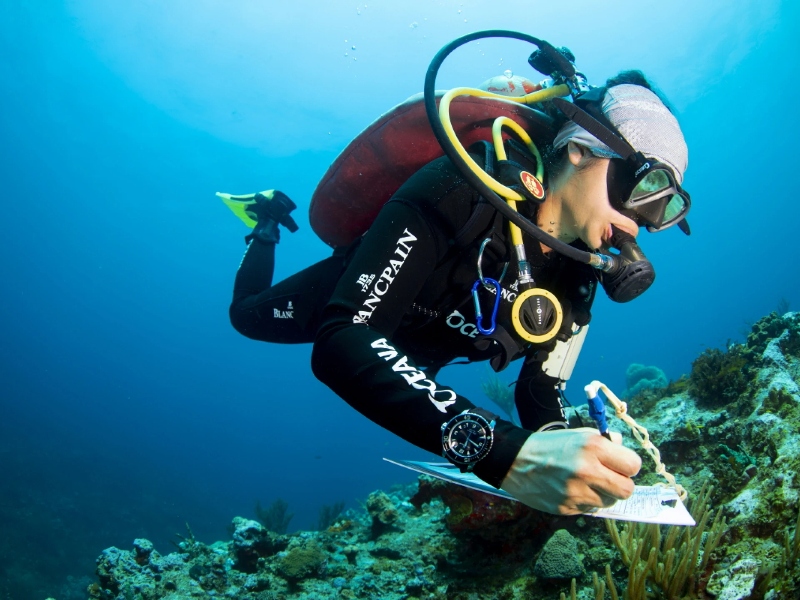
Blancpain, founded in 1735, has a long history of producing high-end mechanical timepieces. Since the 1950s, when it introduced its highly regarded dive watch Fifty Fathoms, the company has supported many ocean conservation efforts under its Blancpain Ocean Commitment initiative.
One key partnership is with Biopixel Oceans Foundation and Biopixel, which support many reef restoration and marine environmental projects, particularly the protection of the Great Barrier Reef. The activities include conducting scientific research to learn more about certain marine species and impact conservation decisions, as well as in producing a series of films on personalities who have dedicated their lives to protecting and saving the Great Barrier Reef.
In 2022, the watch brand announced its partnership with the Professional Association of Diving Instructors (PADI), the world’s largest dive training organisation, to help protect 30% of the world’s oceans by 2030. Together, Blancpain and PADI will work with local communities around the world to expedite the development of more marine protected areas (MPAs). An MPA is a section of the ocean where a government has placed limits on human activity to protect it from threats such as overfishing and water pollution. MPAs are an important step towards the protection of vulnerable marine life and ecosystems. Blancpain is also the founding supporter of National Geographic’s Pristine Seas expeditions, and many of these expeditions reportedly resulted in the creation of MPAs.
In a programme called “Adopt the Blue”, more than 6,600 registered PADI dive centres and resorts will be activated to develop a large network of MPAs, enabling millions of PADI recreational divers to proactively engage in marine conservation. Also, the Blancpain/PADI Community Grant was formed to support and fund critical conservation efforts in local communities.
The great hammerhead shark is listed as “critically endangered” on the International Union for Conservation of Nature (IUCN) Red List of Threatened Species. Blancpain has partnered with the Mokarran Protection Society, a non-profit association created to study, preserve and protect the great hammerhead shark population in French Polynesia.
They are also a supporter of the Tamataroa project (the local name of the great hammerhead shark in French Polynesia), a three-year initiative with the objective of studying the ecology of this endangered species to initiate protection protocols in French Polynesia and along the shark’s migratory routes.
What’s next?
With the growing awareness of the dangers of climate change and the harm it is doing to our planet and oceans, it is crucial that we (governments, organisations, conservation groups, local communities and individuals) collectively work together through close partnerships, collaborations and open communication channels to find new creative solutions to protect the one planet that we live in. As the saying goes, “There is no planet B.” Let’s continue to invest in education (particularly schoolchildren), creating awareness of the beauty of our oceans and highlighting the dangers faced particularly from human activities. Once people appreciate and start caring for something, they will tend to take steps to protect it. And in case you feel like one person alone cannot make a difference, it is time to realise that no single step or effort is too small. In the words of Mother Teresa: “We ourselves feel that what we are doing is just a drop in the ocean. But the ocean would be less because of that missing drop. We must remember that every very little thing we do has a ripple effect that can ultimately transform the world (and the waters) around us.”
This article first appeared on Apr 17, 2023 in The Edge Malaysia.


